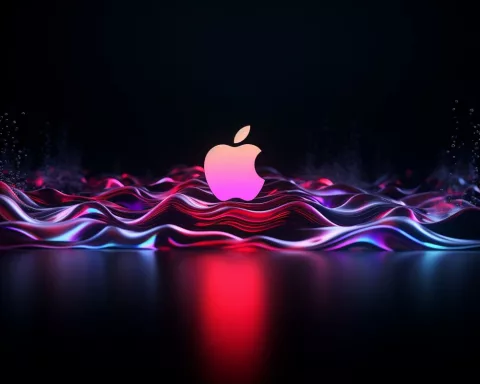Apple has withdrawn an advertisement for its iPad Pro after it was widely criticised for being tone-deaf and insensitive to the artistic community’s concerns about redundancy due to technology and artificial intelligence. The ad featured conventional tools of creativity such as books, musical instruments and cameras being ruthlessly destroyed to make way for the iPad Pro. Many commentators condemned the advert, with some calling it ‘insensitive’ and ‘provocative’. Apple’s vice president of marketing communications, Tor Myhren, apologised for the blunder, reaffirming the company’s commitment to creativity and innovation.
Why did Apple withdraw its iPad Pro advertisement?
Apple withdrew its iPad Pro advertisement after it faced backlash for its controversial portrayal of technology replacing conventional tools of creativity. The ad garnered significant attention but was criticized for being tone-deaf and insensitive to the artistic community’s concerns about redundancy due to technology and artificial intelligence. Apple’s vice president of marketing communications, Tor Myhren, apologized for the blunder, reaffirming the company’s commitment to creativity and innovation while acknowledging their failure to connect with the intended messaging of the video.
In a remarkable display of modesty, the tech giant, Apple Inc., recently opted to cease the broadcast of its iPad Pro advert on television. The company acknowledged that their promotional endeavor had failed to deliver the desired impact, tendering an apology for this unusual slip-up and admitting to having ‘missed the target’.
The Controversial Advert and its Backlash
The contentious commercial, designed to endorse the newest iPad Pro, stirred a whirlwind of criticism in the digital realm. Its idea was straightforward, yet provocative— a compilation of numerous creativity symbols, such as musical instruments, books, record players, cameras, and even arcade games, ruthlessly obliterated, laying the groundwork for the grand unveiling of the iPad Pro. It was an unfortunate analogy, suggesting a tech-savvy future wiping out the conventional tools of creativity.
The iPad Pro, with its sleek design, enhanced M4 processor for superior processing abilities, and dual OLED panels for an amplified display, was indeed a technological wonder. The commercial garnered significant attention, racking up over 2.5 million views on YouTube, although a mere 31,000 of those translated into likes.
However, the timing and the contents of the advert were condemned as ‘tone-deaf’, with many criticizing that it was aired at a time when creative professionals were anxious about being made redundant by technology, especially in the face of the burgeoning use of artificial intelligence. The criticism was vocal, with both critics and users expressing their disapproval. The advert was termed ‘insensitive’ by internet commentators, a sentiment that resonated with the artistic community as well.
Celebrities Weigh in on the Controversy
Prominent actor Hugh Grant was quite outspoken about his discontent, pointing out that the advert portrayed ‘the annihilation of the human experience at the hands of Silicon Valley.’ Likewise, actress and filmmaker Justine Bateman voiced her dissatisfaction, stating that technology and AI ‘aim to obliterate the arts and society in general.’ According to Bateman, the advert only served to enrich a select few at the expense of the masses.
In a remarkable twist, filmmaker Reza Sixo Safai offered his interpretation of the advert. He cleverly edited the advert in reverse, making it seem as though the creative tools were sprouting out of the iPad instead of being destroyed by it. Many praised this version, heralding it as ‘substantially improved.’
Apple’s Response and Lessons Learned
Despite the criticism, Apple affirmed its commitment to creativity and innovation. In an interview with Ad Age, Apple’s vice president of marketing communications, Tor Myhren, echoed Apple’s fundamental belief, stating, ‘Creativity is deeply ingrained in Apple’s DNA, and it is crucial for us to design products that empower creatives worldwide.’ He further conceded that they had failed to connect with the intended messaging of the video, apologizing for the blunder.
This episode highlights the precarious equilibrium between technological progress and the preservation of the human element in creativity. It serves as a caveat to corporations, particularly those in the tech sector, to be mindful of the emotions and fears of their consumers. Embracing the future should not equate to eradicating the past— a lesson that even titans like Apple sometimes need to remember.
1. What was the controversial message in Apple’s iPad Pro advertisement?
The controversial message in Apple’s iPad Pro advertisement was the destruction of conventional tools of creativity such as books, musical instruments, and cameras to make way for the iPad Pro. The ad was criticized for being tone-deaf and insensitive to the artistic community’s concerns about redundancy due to technology and artificial intelligence.
2. Why did Apple face backlash for its iPad Pro advertisement?
Apple faced backlash for its iPad Pro advertisement because it was aired at a time when creative professionals were anxious about being made redundant by technology, especially in the face of the burgeoning use of artificial intelligence. The ad was criticized for being insensitive and provocative, suggesting a tech-savvy future wiping out the conventional tools of creativity.
3. Who criticized Apple’s iPad Pro advertisement?
Internet commentators, users, and prominent actors and filmmakers such as Hugh Grant, Justine Bateman, and Reza Sixo Safai criticized Apple’s iPad Pro advertisement.
4. How did Apple respond to the criticism of its iPad Pro advertisement?
Apple’s vice president of marketing communications, Tor Myhren, apologized for the blunder, reaffirming the company’s commitment to creativity and innovation while acknowledging their failure to connect with the intended messaging of the video. He echoed Apple’s fundamental belief, stating, “Creativity is deeply ingrained in Apple’s DNA, and it is crucial for us to design products that empower creatives worldwide.”
5. What lesson did Apple learn from the controversy surrounding its iPad Pro advertisement?
The controversy surrounding its iPad Pro advertisement taught Apple the precarious equilibrium between technological progress and the preservation of the human element in creativity. It serves as a warning to corporations, particularly those in the tech sector, to be mindful of the emotions and fears of their consumers.
6. Who offered an alternative interpretation of Apple’s iPad Pro advertisement, and what was it?
Filmmaker Reza Sixo Safai offered an alternative interpretation of Apple’s iPad Pro advertisement. He cleverly edited the advert in reverse, making it seem as though the creative tools were sprouting out of the iPad instead of being destroyed by it. Many praised this version, heralding it as “substantially improved.”












